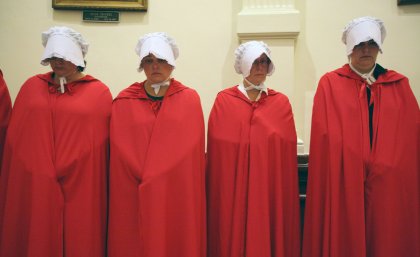
Women like Serena Joy from The Handmaid’s Tale might be more common than you think.
An international study involving UQ School of Psychology researchers has examined why some women support a sexist social system that disadvantages them.
The researchers surveyed 6560 New Zealand women and 269 American women about social attitudes, including whether they believed the gender hierarchy was fair, and if they felt a personal need for protection from men.
UQ’s Dr Fiona Barlow said the study found that women who believed that relationships between groups should be based on a hierarchy rather than on equality also felt that they needed to rely on men to both protect them, and provide for them.
“Women who support the social hierarchy in general also appear to be high in benevolent sexism – meaning what while they hold a generally positive view of women, they see their own low-status place in the gender hierarchy as fair,” Dr Barlow said.
“Benevolent sexism concerns revering traditional women, provided that they do not violate traditional norms, like being an outspoken feminist or an ambitious career woman.
“This ideology also concerns the idea that it is men’s obligation to look after and protect ‘good’ women.
“This helps to explain how some women can support, or even fight for, limitations on what women are allowed to do - just like Serena Joy does in The Handmaid’s Tale.”
Dr Barlow said more research is needed into why this attitude exists.
“These kinds of beliefs may be contributing to discrimination in the workplace and preventing women from participating in collective action for greater gender equality,” she said.
The research, conducted as part of University of Osnabruck’s Dr Helena Radke’s PhD, and in conjunction with UQ’s Professor Matthew Hornsey and University of Auckland’s Professor Chris Sibley, is published in the Australian Journal of Psychology.
Media: Dr Fiona Barlow, f.barlow@psy.uq.edu.au, +61 7 3365 6354; Dr Helena Radke, Helena.Radke@uos.de, University of Osnabrück, Germany, +49 541 969 4090; Dani Nash, UQ Communications, dani.nash@uq.edu.au, +61 7 3346 3035.



